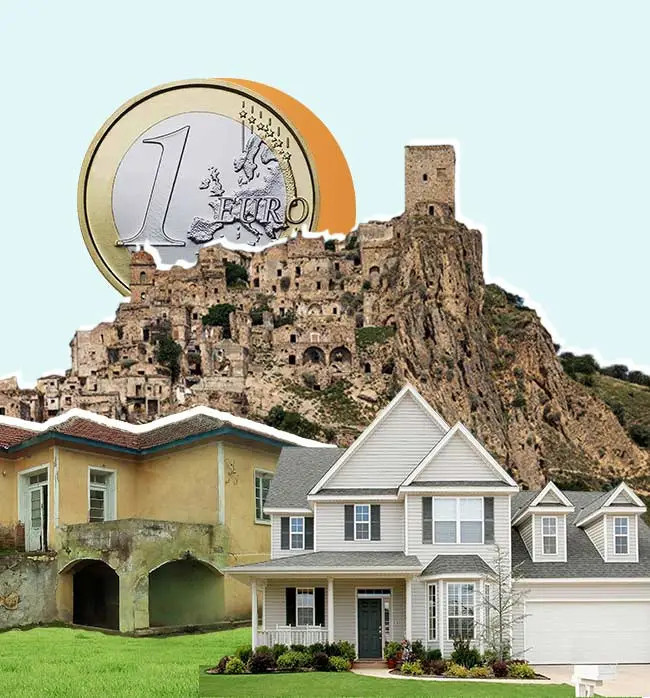
The trend of one Euro houses doesn’t seem to be going away anytime soon
If there’s anything about southern Europe you have heard about other than the culture, it is the curious trend of ‘1 Euro houses’ that began almost a decade ago, but still somehow makes the news. There’s always a new renovation in some old Italian town that shows up on our feeds even today, and the conversation starts again. Yes, the houses are not really worth 1 Euro or INR 87. Yes, there’s considerable repairs involved. But after over ten years of this, how much has changed?
Enter expats
Regions like Southern Italy, Sicily, and North Eastern Spain have been impoverished for centuries compared to other regions in the countries. This has caused large-scale immigration to urban areas and industrial provinces. The resulting imbalance has led to the creation of several ghost towns all over the continent, with crumbling, abandoned villages and fields.
These towns, with their crumbling infrastructure, have been offered up to anyone willing to purchase. Among the initiatives started by the local governments are the 1 Euro houses. This, however, does not mean that you pay a single Euro for the house, or that you will get a buyer’s agreement with it. It means that the auction for these houses starts at one euro, and can go over that in case the place is attractive to other people.
After this comes the renovation costs, which can set one back to some extent, but not as much as it would if you purchased an entire house elsewhere. Alongside this, one would also require other permits and agreements with the local government, which means that a new house, without repairs, could cost about three thousand Euros (about INR 2.5 lakh).
Worth it?
One of the immediate repercussions to this scheme has been a lot of wealthy folks purchasing and renovating either BnBs, or holiday homes that they visit once or twice a year. While the local infrastructure has certainly improved with the addition of facilities and renovated housing, the culture has somewhat stagnated as most of the towns still don’t have a permanent population.
Many great initiatives have come up thanks to this as well, though. StreetTo, a local organisation, seeks to connect people who wish to permanently relocate with a one Euro house according to their preferences. While progress has been slow, as is with places one wishes to repopulate, perhaps trial and error is the way to go.